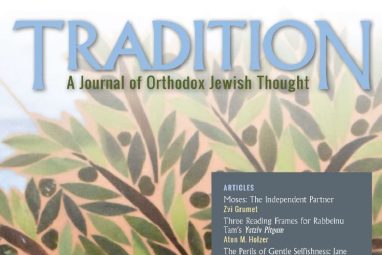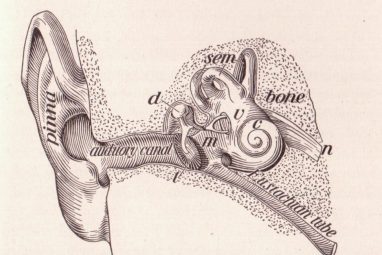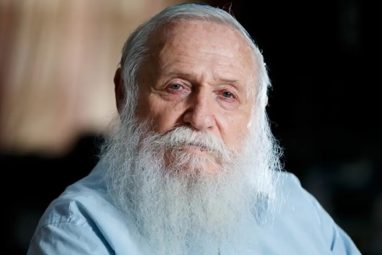February 13, 2025
Published by Tradition Online at February 13, 2025
Balancing the needs for human economy and pleasure against sensitivity to animal life presents a delicate challenge. R. Moshe Feinstein’s halakhic rulings aim to demarcate the acceptable parameters of treating God's creatures. In this installment of “Unpacking the Iggerot” Moshe Kurtz takes us through R. Feinstein’s approach to these issues in his halakhic and homiletic writings.
February 10, 2025
Published by Tradition Online at February 10, 2025
Hyim Shafner considers the impact of what he calls “The Frum Prosperity Gospel” on Jewish life and values. Read his open-access essay from TRADITION’s most recent issue which responds to topics raised in our special Summit volume on “The Challenge of Material Success.”
February 6, 2025
Published by Tradition Online at February 6, 2025
AI tempts everyone, from the 6th grader facing a book report deadline to a Rabbi needing to prepare for Shabbat HaGadol. The promise of an easy shortcut is hard to resist. Josh Flug, in a guest installment of TRADITION Questions, considers the costs—in integrity, in the final product, and the damage done to “amelut” as a Jewish value.
February 3, 2025
Published by Tradition Online at February 3, 2025
The mailbag brought Aryeh Dienstag’s response to TRADITION’s Summit issue on materialism. He points out the irony that the career choices required to provide a Jewish education may themselves engender a lifestyle that undermines the very messages we hope to communicate to our children through that education.
January 30, 2025
Published by Tradition Online at January 30, 2025
As a brief addendum to our previous “Unpacking the Iggerot” column on secular education, Moshe Kurtz asks what should be a simple question: Did R. Moshe Feinstein read the news? While this may sound like an inconsequential matter, it became a flashpoint for how his posterity and disciples chose to frame his legacy to the masses.
January 27, 2025
Published by Tradition Online at January 27, 2025
TRADITION’s Winter 2025 is here. Preview its contents, access select open-access items, and sample our new feature: Article abstracts for the entire issue. Also: Highlights from upcoming issues and our Summit issue on materialism as a free e-book.
January 23, 2025
Published by Tradition Online at January 23, 2025
A new party favor has begun to make regular appearances at weddings and other smachot—ear plugs. Chaim Strauchler asks what these small pieces of polyurethane say about risk-taking and public health in a halakhic community.
January 21, 2025
Published by Tradition Online at January 21, 2025
R. Haim Druckman’s “Be-Hayyil uve-Ru’ah” covers a wide range of military-related issues. The book is noteworthy because the author (one of the leading voices in Israeli Religious Zionism before his death in 2022) cannot be easily categorized as a hawk or dove. Yitzchak Blau returns for a supplemental entry in the Alt+SHIFT series.
January 19, 2025
Published by Tradition Online at January 19, 2025
As we approach the five-year mark since the initial COVID lockdown, TRADITION has published Rav J. David Bleich’s essay on “Vaxxers and Anti-Vaxxers” in his “Survey of Recent Halakhic Literature” column (available open access for a limited time at TraditionOnline.org).









